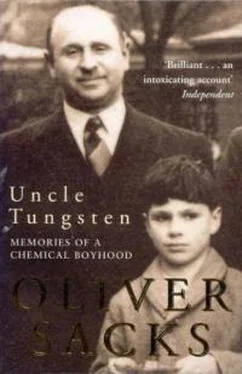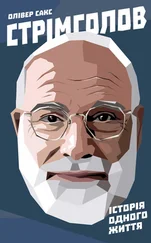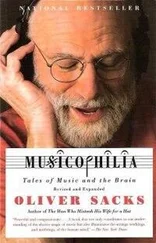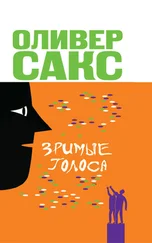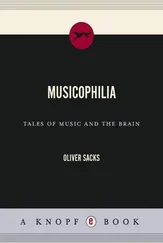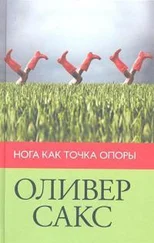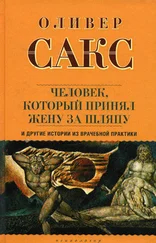Yet, Wilson continued,
Cavendish did not stand aloof from other men in a proud or supercilious spirit, refusing to count them his fellows. He felt himself separated from them by a great gulf, which neither they nor he could bridge over, and across which it was vain to stretch hands or exchange greetings. A sense of isolation from his brethren, made him shrink from their society and avoid their presence, but he did so as one conscious of an infirmity, not boasting of an excellence. He was like a deaf mute sitting apart from a circle, whose looks and gestures show that they are uttering and listening to music and eloquence, in producing or welcoming which he can be no sharer. Wisely, therefore, he dwelt apart, and bidding the world farewell, took the self-imposed vows of a Scientific Anchorite, and, like the Monks of old, shut himself up within his cell. It was a kingdom sufficient for him, and from its narrow window he saw as much of the Universe as he cared to see. It had a throne also, and from it he dispensed royal gifts to his brethren. He was one of the unthanked benefactors of his race, who was patiently teaching and serving mankind, whilst they were shrinking from his coldness, or mocking his peculiarities… He was not a Poet, a Priest, or a Prophet, but only a cold, clear Intelligence, raying down pure white light, which brightened everything on which it felt, but warmed nothing – a Star of at least the second, if not of the first magnitude, in the Intellectual Firmament. Many years later, I reread Wilson’s astonishing biography and wondered what (in clinical terms) Cavendish ‘had.’ Newton’s emotional singularities – his jealously and suspiciousness, his intense enmities and rivalries – suggested a profound neurosis; but Cavendish’s remoteness and ingenuousness were much more suggestive of autism or Asperger’s syndrome. I now think Wilson’s biography may be the fullest account we are ever likely to have of the life and mind of a unique autistic genius.
The ease of obtaining hydrogen and oxygen by electrolysis, in ideally inflammable proportions, led at once to the invention of the oxy-hydrogen blowpipe, which produced higher temperatures than had ever been obtained before. This allowed, for example, the melting of platinum, and the raising of lime to a temperature at which it gave out the most brilliant sustained light ever seen.
Mendeleev, sixty years later, was to speak of Davy’s isolation of sodium and potassium as ‘one of the greatest discoveries in science’ – great in its bringing a new and powerful approach to chemistry, in its defining of the essential qualities of a metal, and in its exhibition of the elements’ twinship and analogy, the implication of a fundamental chemical group.
The enormous chemical reactivity of potassium made it a powerful new instrument in isolating other elements. Davy used it himself, only a year after he discovered it, to obtain the element boron from boric acid, and he tried to obtain silicon by the same method (Berzelius succeeded here, in 1824). Aluminium and beryllium, a few years later, were also isolated through the use of potassium.
Mary Shelley, as a child, was enthralled by Davy’s inaugural lecture at the Royal Institution, and years later, in Frankenstein , she was to model Professor Waldman’s lecture on chemistry rather closely on some of Davy’s words when, speaking of galvanic electricity, he said, ‘a new influence has been discovered, which has enabled man to produce from combinations of dead matter effects which were formerly occasioned only by animal organs.’
David Knight, in his brilliant biography of Davy, speaks of the passionate parallelism, the almost mystical sense of affinity and rapport, that Coleridge and Davy felt, and how the two planned, at one point, to set up a chemical laboratory together. In his book The Friend , Coleridge wrote:
Water and flame, the diamond, the charcoal… are convoked and fraternized by the theory of the chemist… It is the sense of a principle of connection given by the mind, and sanctioned by the correspondency of nature… If in a Shakespeare we find nature idealized into poetry, through the creative power of a profound yet observant meditation, so through the meditative observation of a Davy … we find poetry, as it were, substantiated and realized in nature: yea, nature itself disclosed to us… as at once the poet and the poem!
Coleridge was not the only writer to ‘renew his stock of metaphors’ with images from chemistry. The chemical term elective affinities was given an erotic connotation by Goethe; Keats, trained in medicine, reveled in chemical metaphors. Eliot, in ‘Tradition and the Individual Talent,’ employs chemical metaphors, from beginning to end, culminating in a grand, Davyan metaphor for the poet’s mind: ‘The analogy is that of the catalyst… The mind of the poet is the shred of platinum.’
The great chemist Justus von Liebig wrote powerfully about this feeling in his autobiography:
[Chemistry] developed in me the faculty, which is peculiar to chemists more than to other natural philosophers, of thinking in terms of phenomena; it is not very easy to give a clear idea of phenomena to anyone who cannot recall in his imagination a mental picture of what he sees and hears, like the poet and artist, for example… There is in the chemist a form of thought by which all ideas become visible in the mind as the strains of an imagined piece of music…
The faculty of thinking in phenomena can only be cultivated if the mind is constantly trained, and this was effected in my case by my endeavouring to perform, so far as my means would allow me, all the experiments whose description I read in the books… I repeated such experiments… a countless number of times,… till I knew thoroughly every aspect of the phenomenon which presented itself… a memory of the sense, that is to say of the sight, a clear perception of the resemblance or differences of things or of phenomena, which afterwards stood me in good stead.
Davy went on with his investigations of flame, and, a year after the safety lamp, published Some Philosophical Researches on Flame . More than forty years later, Faraday would return to the subject, in his famous Royal Institution lectures on The Chemical History of a Candle .
Enlarging on Davy’s observation of catalysis, Dobereiner found in 1822 that platinum, if finely divided, would not only become white-hot, but would ignite a stream of hydrogen passing over it. On this basis he made a lamp consisting basically of a tightly sealed bottle containing a piece of zinc which could be lowered into sulphuric acid, generating hydrogen. When the stopcock of the bottle was opened, hydrogen gushed out into a small container holding a bit of platinum sponge, and instantly burst into flame (a slightly dangerous flame, because it was virtually invisible, and one had to be cautious to avoid being burned). Within five years, there were twenty thousand Dobereiner lamps in use in Germany and England, so Davy had the satisfaction of seeing catalysis at work, indispensable in thousands of homes.
I was intrigued, too (though I never practiced it), by cine-photography. Here again it was Walter who made me realize that there was no actual movement in the film, only a succession of still images which the brain synthesized to give an impression of movement. He demonstrated this to me with his film projector, slowing it down to show me only the still images, and then speeding it up until the illusion of motion suddenly occurred. He had a zoetrope, with images painted on the inside of a wheel, and a thaumatrope, with drawings on a stack of cards, which when rotated, or rapidly flicked, would give the same illusion. So I had the sense that movement, too, was constructed by the brain, in a manner analogous to that of color and depth.
Читать дальше
